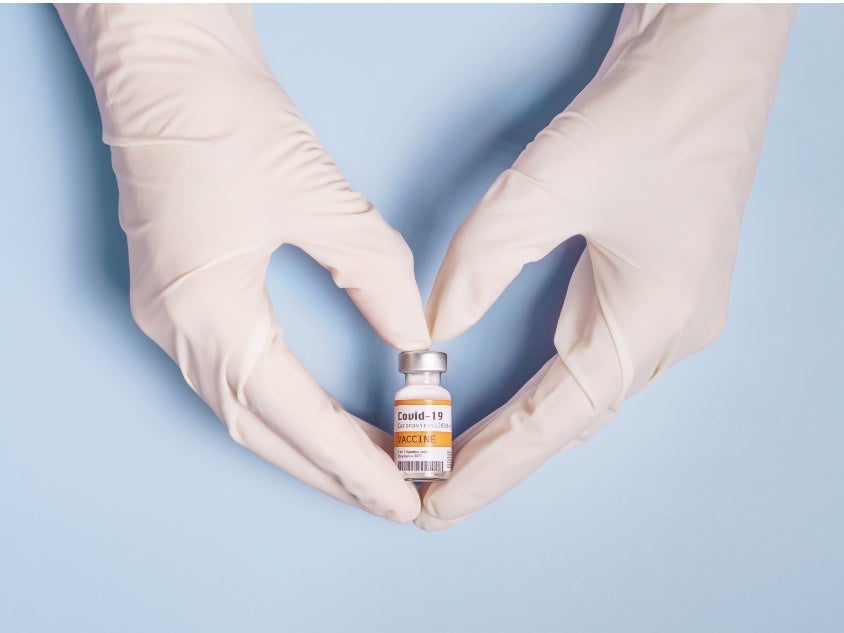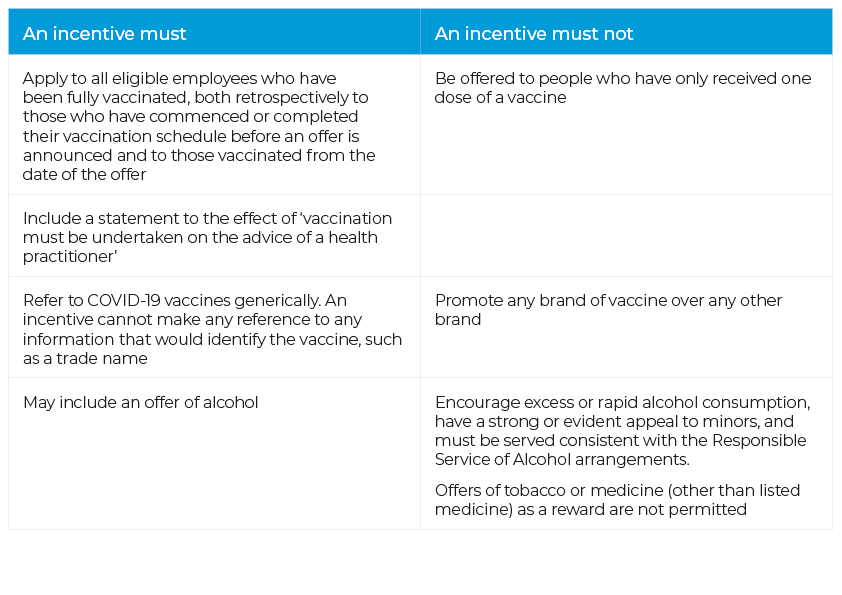08 September 2021
4 min read
#Workplace Relations & Safety, #COVID-19
Published by:

With the lengthy Delta variant restrictions severely impacting the economy, many employers are looking for ways to increase vaccination rates among their staff in the hope of the economy re-opening in line with the Federal Government’s ‘National Plan to transition Australia’s National COVID-19 Response’ (National Response).
The National Response sets out two vaccination targets of approximately 70 per cent and at least 80 per cent of eligible Australians over 16 years of age having both doses of the COVID-19 vaccine. The first vaccination target of approximately 70 per cent aims for fewer lockdowns and the second target of 80 per cent foreshadows only baseline restrictions.
These vaccination incentives have prompted some employers to consider ways in which to promote and encourage staff vaccinations. In doing so, employers need to tread carefully to ensure they comply with and are aware of:
The Therapeutic Goods Administration (TGA) issued a permission (Therapeutic Goods (Restricted Representations - COVID-19 Vaccines) Permission (No. 3) 2021 (2021 Permission)) and guidelines with respect to the communication of the COVID-19 vaccine and employer incentives.
Employers wanting to inform their employees about the vaccination can lawfully do so by either using Federal, State or Territory Government produced material or producing ‘self-developed’ materials, provided they are consistent with the information on the Australian Government Department of Health’s website.
Any material produced by an employer must not:
The 2021 Permission permits employers to offer rewards and incentives to any employee who is fully vaccinated subject to the following conditions:

Subject to employers complying with the 2021 Permission and TGA’s guidelines, employers can incentivise vaccinations in a variety of ways, including:
Incentivising staff vaccinations is not, however, without legal risk.
iCare NSW, through its ‘coronavirus information for employers’, recognises that employers may be liable for workers compensation claims where an employee suffers a significant injury from the COVID-19 vaccine and the injury occurred out of or in the course of employment. iCare NSW has indicated that the likelihood of a vaccine injury being covered by workers compensation will increase where an employer:
In recognition of this risk, the Federal Government has introduced protections for employers through the COVID-19 Vaccine Claims Scheme (Scheme). The Scheme will cover the costs of injuries of $5,000 and above due to the administration of a TGA approved COVID-19 vaccine or due to an adverse event that is considered to be caused by a COVID-19 vaccination. For claims between $5,000 and $20,000, specific evidence must be provided to support a claim. The evidence requirements are still being developed for claims of $20,000 or more (potentially including death). Employers can find more information on the requirements and process for submitting a claim here.
The Scheme will retrospectively apply from the start of the vaccine roll out on 22 February 2021 and will be fully funded by the Federal Government. An independent expert will assess claims under the Scheme, and compensation may be awarded on a case-by-case basis.
The Scheme will be administered by Services Australia and is designed to provide a simple, streamlined process for compensation without the need for complex legal proceedings. Those who do not want to use the Scheme will still be able to go to court, although they are unlikely to receive a more favourable compensation payment as the Scheme has been designed to pay out a similar amount to a court.
While the Scheme will reduce the risk of workers compensation claims, employers who encourage, require or facilitate COVID-19 vaccinations may still be vulnerable to such claims.
A related hot topic for employers is whether they can mandate COVID-19 vaccinations. Read our in-depth discussion on this complex issue here.
Disclaimer
The information in this publication is of a general nature and is not intended to address the circumstances of any particular individual or entity. Although we endeavour to provide accurate and timely information, we do not guarantee that the information in this article is accurate at the date it is received or that it will continue to be accurate in the future.
Published by: